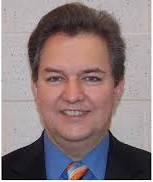Past Conferences
Alan Gintzler currently works at the SUNY Downstate Medical Center, State University of New York Downstate Medical Center. Alan does research in Endocrinology, Molecular Biology and Neuroscience. Their most recent publication is 'Plasticity of signaling by spinal estrogen receptor alpha, kappa-opioid receptor and mGluRs over the rat reproductive cycle regulates spinal endomorphin 2 antinociception: relevance of endogenous biased agonism'. He has over 100 publications that have been cited over 4,000 times and his publication H-index is 38. He has been serving as an Editorial Board Member of many reputed journals.

Alan GintzlerDownstate Medical Center,USA
Eliana has her expertise in Food and Drug Law. She has 26 years’ experience in helping international pharmaceutical, health and food companies to gain presence in markets of Latin America and Europe, especially. She has active participation in the harmonization of regulatory affairs process through the organizations that she represents. She has played an active role in setting up Brazil’s Public Health Regulator (ANVISA), organizing the agenda of its first Anvisa’s President in the USA to explore the US especially the Food and Drug Administration (FDA) and Paho, in December 1998. She is President of the ABPVS a Regulatory Affairs Organization for Brazil and Latin America Countries and Lawyer at Silva de Moraes, Member of the Brazilian Bar Association and The Portugal Bar Association.

Eliana Silva de MoraesFood and Drug Law,Brazil
Pamela is an accomplished Gastrointestinal (GI) and Translational Pharmacologist with extensive experience in Academia and R&D. In R&D her leadership resulted in the discovery and characterization of eluxadoline (Viberzi), which is now a marketed drug for patients with diarrhea-predominant Irritable Bowel Syndrome (IBS-d). She has received recognition of the impact of her work ( >100 publications), serves on Advisory Boards and is Past-Chair of the Translational & Clinical Pharmacology Division of ASPET. After post-doctoral training (Center for Brain Research, University of Rochester NY, and Department of Pharmacology, Georgetown University Medical School) she built an internationally-recognized laboratory in the neuropharmacology of GI disorders at Louisiana State University Health Sciences Center New Orleans, where she rose through the ranks to become Full Professor of Pharmacology. She joined Johnson & Johnson Pharmaceutical Research to lead a newly-formed GI Research Team. This resulted in eluxadoline, which was US FDA approved and launched in 2015. In Biotechnology (Centocor) she led incubator-funded initiatives on innovative technology - intestinal electrical stimulation for metabolic disease and engineered protein scaffolds enabling oral delivery of peptides. Currently, she is executing therapeutic strategies to exploit the gut signalling for Metabolic Diseases at Janssen R&D of J&J. As Adjunct Professor in the Dept. Pharmacology and Physiology, Drexel University Medical School she contributes to the educational mission of the College.

Pamela J. Hornby Janssen R&D, LLC,USA
Dr. Rabah is a leader in drug discovery and early development focusing on drug target identification, mechanistic and translational studies, and the advancement of therapeutic candidates into clinical development. Dr. Rabah is currently the head of the Drug Discovery Incubator at Biogen. She has been with Biogen for over 13 years in roles of increasing scope and responsibility including the Head of the Immuno-pharmacology Group, Head of Immunology Discovery Biomarkers and Head of the New Indications Research Group. In her current role Dr. Rabah leads a drug discovery incubator and accelerator group that has created an innovative pipeline of projects using different modalities (biologics, small molecules, ASO, and gene therapy) in multiple indications. The portfolio spans the entire drug discovery spectrum from early exploratory to Phase II clinical studies. In addition, her group is tasked with incubating emerging disease areas, and developing them into independent research units. Dr. Rabah’s educational training includes a Master’s degree in Immunology from the American University of Beirut, PHD in Microbiology and Immunology from Virginia Commonwealth University/Medical College of Virginia (VCU/MCV), and post-doctoral training at Harvard medical School. .

Dania RabahBiogen,USA
Dr. Michael Hicks has over 20 years of pharmaceutical research experience with a diversified background ranging from early discovery to pharmaceutical pre-clinical R&D. Dr. Mike started in Analytical Research and Development in 1989 at Merck, received his PhD from Seton Hall University in 1997. He taught an Advanced Biomedical Engineering Graduate Laboratory at the Stevens Institute of Technology as adjunct faculty for ten years. He served as the 2017 Program Director for the Eastern Analytical Symposium and is currently an affiliate member of the EAS Board of Directors. He leads the Analytical Chemistry subteam of the Pharmaceutical Chemistry Roundtable for the ACS Green Chemistry Initiative Global Consortium. He has been working in the Separations Sciences area for over 16 years and is currently in the Analytical Chemistry and Enabling Technologies group in the Analytical R & D Department at Merck Research Labs in Rahway NJ specializing in separations, particularly in supercritical fluid chromatography as well as other large molecule method like size exclusion with multi-angle light scattering.

Michael Brendan HicksMerck & Co.,USA
James Bruno has thirty years of experience in the pharmaceutical and fine chemical market place. He has worked on a global basis to develop commercial processes for the manufacturing of intermediates and API's, develop regulatory strategies for your products. He is the past Chairman of the Rider University, Scientific Advisory Board and past president of Drug Chemical and Associated Technologies. His specialties include Regulatory including PAI and document review, Process Validation, Flow Chemistry and continuous improvements, Global Supply Chain, Plant Audits, Product Management, and Technology Assessments.

James Bruno,CapSolutions,USA
Débora Cristina de Oliveira holds a bachelor's degree in Pharmacy and Biochemistry from the State University of Londrina (1991), a Master's Degree in Pharmaceuticals and Medicines from the University of São Paulo in the area of ethylene oxide gas sterilization (2000) and a PhD in Pharmaceuticals and Medicines from the University of São Paulo of plasma sterilization (2007). Has experience in the management of commercial pharmacy, pharmaceutical attention to the patient and implantation of laboratory of manipulation of magisterial and officinal formulas. Additionally, She has experience in the area of Industrial Pharmaceuticals, working in the following segments: controlled areas of sterile drug production, environmental monitoring of controlled areas and training of monitored and controlled production area operators. Currently holds the position of Adjunct Professor I in the Pharmacy and Biochemistry course of the Federal University of São Paulo-UNIFESP, next to the curricular units of Physical and Chemical Quality Control of Medicines and Cosmetics; Biological and Microbiological Quality Control of Medicines and Cosmetics; Scientific methodology.

Débora Cristina de OliveiraUniversidade Federal de São Paulo,Brazil
Dr. Cai is currently a pharmacokineticist in the Department of Pharmacokinetics and Pharmacodynamics (PKPD) at Genentech Inc. He is responsible for providing PKPD and pharmacology expertise to support the development of therapeutic proteins for the indications of multiple immunological and neurological diseases. Prior to his job at Genentech, he received BS in biological sciences from Peking University in 2010, MS in bioengineering from the University of Illinois at Urbana-Champaign in 2012, and PhD in pharmaceutical sciences from the University of North Carolina at Chapel Hill in 2016.
.jpg)
Hao CaiGenentech,USA
Paul Lopolito is a technical services senior manager for the Life Sciences Division of STERIS Corporation (Mentor, Ohio). He currently provides global technical support related to critical environment and process research cleaners, which includes field support, site audits, training presentations and educational seminars. Paul has over 20 years of industry experience and has held positions as a technical services manager, manufacturing manager and laboratory manager. He earned a B.A. in Biological Sciences from Goucher College in Towson, MD.

Paul LopolitoSTERIS Corporation,USA
For more than two decades, Steve Durham served as an Assistant United States Attorney in Washington, D.C. He was a founding member of the Department of Justice’s Financial Fraud Task Force and Chief of the Fraud and Public Corruption Section. At the DOJ, he supervised 35 white-collar prosecutors and successfully investigated, prosecuted, and supervised hundreds of high-profile cases including United States v. Siemens AG, which resulted in a combined SEC/DOJ settlement of $1.6 billion. He is a graduate of the University of Chicago and Northwestern University School of Law.

Steven J. DurhamLabaton Sucharow,USA
Giora Z Feuerstein Received MD (Medicine) and MSc (Pharmacology) degrees from the Hebrew University Medical School, Jerusalem Israel. Dr. Feuerstein proceeded into research career through Fogarty Fellowship Award at the NIH (Bethesda, MD) focused on the roles of the sympathetic and neuropetides transmitters in autonomic stress conditions. In 1981, Dr. Feuerstein joined the USUHS (Bethesda, MD) studying mechanisms associated neuro-injury (Stroke and Neuro-trauma) and reaching the rank of Professor. In 1988, Dr Feuerstein joined the Pharmaceutical industry where he served for 22 years in executive roles leading diverse drug discovery and development programs that culminated in first in class registration of carvedilol for treatment of heart failure, antithrombotic agents and genomic medicine. As VP of Discovery Translational Medicine (Wyeth/Pfizer) Dr. Feuerstein introduced new paradigms for Translational Medicine. In 2011 Dr Feuerstein was recruited by the USG/DoD (HQE) as Chief Technical and Medical Officer of MCM programs. Since 2016, Dr. Feuerstein serves as Chief Science and Medicine officer for Debina Diagnostic Inc., a start-up biotechnology company focused on NanoMedicine diagnostics and Theranostics. Giora published over 730 papers, 15 patents, and awarded FAHA recognition (AHA) and Distinguished Civil Service Medal.

Giora Feuerstein Debina Diagnostics Inc,USA
Robert P. Bianchi is President and Chief of Scientific and Technical Affairs at Prescription Drug Research Center, USA. He is responsible for category 1 extraction studies, analyses of scientific research involved in drug abuse resistance issues, evaluation of experiments and laboratory analyses of client and competitive drug dosage units. Provide technical support in developing abuse resistant delivery systems for products containing controlled substances. Consulted with many pharmaceutical companies about their delivery system and participated in preparation for an FDA Advisory Committee meeting, as well as facilitated meetings with the DEA to discuss project status.

Robert P. BianchiPrescription Drug Research Center (PDRC),USA
Mustafa has 14 years of industrial and 10 years academic research experience in medicinal chemistry with increased responsibilities and various positions at pharmaceutical companies (ArQule, TransTech Pharma Inc., vTv Therapeutics) as well as in academic institutions. He is currently an Associate Professor of Medical Pharmacology at the Istanbul Medipol University and in this role, he collaborates with a wide range of investigators to develop drugs for targeted molecules in the areas of cancer, neurodegenerative disease, diabetes, and obesity.

Mustafa GuzelIstanbul Medipol University,Turkey
Leonora V Autus-Geniston has completed her PhD from University of Santo Tomas. She is the Officer of United Bayanihan Foundation and an Assistant Professor at Saint Paul University–Quezon City, Philippines. She has published several papers in reputed journals on proteomics and pharmacogenomics, specifically on SNPs on drug metabolizing enzymes among Filipinos. She received the Best Poster Award in Health Science from National Academy of Science and Technology (Philippines) on “Method Development of nanoLC-MS/MS for Identification of Protein Biomarkers in the Urinary Proteomes of Prostate Cancer” and Best Poster in Penang, Malaysia on “Protective Effects of Thiamin on Genotoxicity in Mice”..

Leonora V Autus-GenistonUnited Bayanihan Foundation,Philippines
Jijun Hao is an Associate Professor at Western University of Health Sciences, Pomona, CA, USA, His current research mainly focuses on chemical approaches for stem cell/iPS cell cardiomyogenesis, zebrafish-based drug screening, and cancer biology.

Jijun HaoWestern University of Health Sciences,USA
To be updated soon.

Weam Qattan Ministry of the National Guard Health Affairs,Saudi Arabia
Abstract: Biomolecules like saponins have distinct role in lipid metabolism, cell regulation and anticancer signaling. They possess unique surface activity (amphipathic behavior) that often hinders their processing from natural sources. Here, we deployed this behavior as vital tool for its segregation from crude extract via selective enrichment in emulsion’s monolayer, as described in TC Obasi et al., 2017. Our preliminary experiments resulted to increased yield of saponins from S. longipedunculata above 80%. MTT Assay revealed a 59 fold cytotoxicity selectivity by relevant TLC fraction against Caski than normal fibroblast (HFL-1) cell line. RT-qPCR gene expression, supported the signaling of apoptosis via AKT-3, MCL-1 and BCL2L1 inhibition. Our major goal therefore, was to identify, isolate and characterize these compounds responsible for antitumor activity.

Titus ObasiFaculty of Pharmacy,Romania
Dr. Belong Cho is a professor of family medicine of Seoul National University College of Medicine. His major interests lie on the health promotion and chronic disease management. He has written many books such as ‘Primary care physician for my family’, ‘Male Menopause’, ‘Medical information for Chronic Care’ etc. He is a member of the advisory board for the ‘Ministry of Health’, ‘National Health insurance service’ and ‘Center for Disease Control’ for chronic disease care. His last research papers are : Effects of an integrated health education and elastic band resistance training program on physical function and muscle strength in community-dwelling elderly women: HAHA II study), Enhancing physical activity and reducing obesity through smartcare and financial incentives: A pilot randomized trial, Performance on physical function tests and the risk of fractures and admissions: Findings from a national health screening of 557,648 community-dwelling older adults.

Belong Cho Seoul National University College of Medicine,South Korea
Maria Kontoyianni holds a PhD in computational chemistry from the University of North Carolina, Chapel Hill, where she worked under the supervision of Professor Phil Bowen. After a post-doctoral fellowship with Professor Terry Lybrand at the University of Washington, she joined ZymoGenetics, where she used computational methods in support of osteoporosis. She then moved to Research & Development of Fortune 500 companies, such as Johnson & Johnson and Procter & Gamble, applying structure-based design to various therapeutic targets ranging from hit to lead optimization. In her most recent post, she was the Head of Drug Discovery at Crystax, a fragment-based biotechnology firm in Barcelona. She sits on the editorial board of several journals, holds seven patents, is a clinical consultant and panelist for the European Union large scale grant application proposals and NIH.

Maria KontoyianniSouthern Illinois University Edwardsville,Australia
To be updated soon.

Priya Saradha Levstat,USA
Thomas Heinbockel, Ph.D., is Professor in the Department of Anatomy, Howard University College of Medicine, Washington, DC, USA. Dr. Heinbockel’s laboratory engages in multidisciplinary research to elucidate organizational principles of neural systems in the brain, speci?cally the limbic and olfactory system. His research has been directed at understanding brain mechanisms of information processing and their relation to neurological and neuropsychiatric disorders. His lab works also on translational projects, speci?cally, the development of novel anti-epileptic drugs and pharmacotherapeutic treatment options of drug addiction. His lab analyzes drug actions at the epi- and genetic level using next-generation sequencing technology.

Thomas Heinbockel Howard University College of Medicine, USA
Abstract: Immunotherapy has emerged as a potent treatment strategy for the treatment of HPV-associated malignancies. Radiotherapy has demonstrated potent antigen-specific CD8+ T cell-mediated antitumor immune responses in preclinical models and is currently being tried in clinical trials. The higher number of immune cells in the site of lesion is closely associated with good prognosis. Granulocyte-macrophage colony-stimulating factor (GMCSF) has been reported to provide the ability to induce accumulation of antigen presentation cells and CD8+ T cells. Therefore, in the current study, we utilized a combination of radiotherapy with local GMCSF application in the TC-1 tumor model.

Jinhwi KimCatholic University of Korea,Korea
Abstract: Changes in the gene expressions are often observed due to epigenetic modifications that significantly influence cancer development, growth, and progression. The main epigenetic modifications observed in human are methylation and acetylation. In this regard, several histone deacetylase inhibitors (HDACi) such as SAHA (Vorinostat) are in clinical trials as a new class of drugs with promising effects on the cancer growth and metastatic process. The molecular mechanism whereby HDACi can induce cell cycle arrest in cancer cells and trigger apoptosis, necrosis or necroptosis is still evolving. On the other hand, a newly developed small molecule known as RG7388 is a specific inhibitor for an oncogene-derived protein called MDM2, which is also in clinical trials for the treatment of a wide range of cancers. We tested the effects of individual drug treatments as well as the combination treatments with SAHA + RG7388, using the MCF-7 breast cancer cells and LNCaP prostate cancer cells.

Uma MaheshwariVRR Institute of Biomedical Sciences, India

Richard L. WilsonUniversity of Baltimore,USA
Dr. Xiang-Qun (Sean) Xie is an Associate Dean for Research Innovation at School of Pharmacy and a Professor of Pharmaceutical Sciences/Drug Discovery Institute, and a PI of an integrated Medicinal Chemistry Biology laboratory of CompuGroup, BioGroup and ChemGroup (www.CBLigand.org/XieLab) at University of Pittsburgh. He is a member of the Science Advisory Board to the US FDA. He is a Founding Director of Computational Chemical Genomics Screening Center (www.CBLigand.org/CCGS), and a Director/PI of NIH National Center of Excellence for CDAR (www.CDARCenter.org). He holds joint positions at Dept of Computational Biology and Dept of Structural Biology, and Pitt Cancer Institute MT/DD Program. He is an Editorial Advisory Board member for AAPS Journal and American Journal of Molecular Biology, and Associate Editor of BMC Pharmacology Toxicology.

Xiangqun XieUniversity of Pittsburgh,USA
Myra Lee Weiner is widely known toxicologist with expertise on food additives and ingredients. During her thirty years as an corporate research toxicologist, her responsibilities included safety assessment of existing and new products; designing and directing toxicology studies; and interfacing with trade associations and regulatory agencies on a global basis. Her publications include over forty peer-reviewed articles on food additives, pharmaceutical excipients, industrial chemicals, drugs and pesticides. Dr. Weiner has participated in numerous international meetings and task forces. She co-edited Excipient Toxicity and Safety (Marcel Dekker, 1999), and was the recipient of the 2011 Marshall Steinberg Memorial Award from the International Pharmaceutical Excipients Council Foundation for outstanding contributions and achievements in excipient safety. She has been a Diplomate of the American Board of Toxicology for thirty years and a Fellow of the Academy of Toxicological Scientists for seven years. Dr. Weiner earned a B.A. in Biology cum laude from Stern College for Women; a Ph.D. in Pharmacology from Downstate Medical Center, the State University of New York, and completed a postdoctoral appointment at the Research Institute of Pharmaceutical Sciences, University of Mississippi. Currently, she is a consultant for her firm, TOXpertise, LLC.
.jpg)
Myra WeinerToXpertise,,USA
Nigel J Smart is the President of Smart Pharmaceutical consulting a West Chester, Pennsylvania, USA Life Sciences consulting firm. He is a serial entrepreneur with over 35 years in the biotechnology/pharmaceutical industry,33 of those based in N. America in both corporate and consulting capacities. He consults on a variety of Life Sciences topics with particular interest in bioprocess development/manufacturing in addition to the application of Quality Compliance principles to modern processes. He has a special interest in the application of LEAN principles to bioprocess manufacturing systems and is currently authoring a book dedicated to this topic entitled “Lean Biomanufacturing” Oxford Health Publishers.
.jpg)
Nigel SmartSmart Pharmaceutical Consulting,USA
Ye Xu is dean of school of basic medical sciences at Jilin Medical University. He serves as chairman of Jilin Province Society for Anatomical Sciences (JPSAS), and communication assessor of National Natural Science Foundation of China. In addition to serving as expert of Jilin Higher Education Society, he is director of Jilin Provincial Key Laboratory of Tumor Targeting Treatment and Translational Medicine. His research interests include tumor chemotherapy, targeted therapy and drug sensitivity, and Neurobiology. He has over 40 publications in prestigious journals such as Cancer Letters, European Journal of Cancer, Oncotarget, Antioxidants & Redox Signaling, Neurobiology Aging, Autophagy, and Apoptosis.
.jpg)
Ye XuJilin Medical University,China
Louisa Roberts leads the North America Client Engagement team for Watson Health Life Sciences. She works with Pharma / Biotech clients to identify areas where Watson’s cognitive computing capabilities and advanced analytics can be applied to solve complex problems and realize business value. Louisa has focused her career in pharma, both in house at AstraZeneca and GSK and as an external consultant with IBM Global Business Services and IDEA Pharma. Louisa has defined strategy and improved decision making in all business critical functions, including R&D, Manufacturing, New Product Development, Marketing, Managed Markets and Sales. Today Louisa helping clients harness the power of Watson to accelerate discovery, transform clinical trials, conduct next generation pharmacovigilance, reimagine commercial operations and engage with customers in new ways. Louisa has published a number of Point of View, Journal Articles and Blogs and speaks regularly on her practical experience with cognitive computing.
.jpg)
Louisa RobertsIBM Watson Health,USA
Giuseppe Santo has obtained an MSc in Preclinical and Clinical Drug Development in 2009 and a Master's Degree in Chemistry and Pharmaceutical Technology in 2007. He has been working in the pharmaceutical industry for 10 years. From 2008 to 2016. Dr. Santo held several positions at the “Angelini Research Center” in Rome. He was involved in the research and development of innovative healthcare products (drugs, nutraceuticals, and medical devices). He is currently working for the U.S. subsidiary of Angelini Pharma as a Country Medical & Scientific Manager.
.jpg)
Giuseppe SantoAngelini,Italy
Mark Feitelson received his PhD in Microbiology and Immunology from the UCLA School of Medicine in 1979. He was then an American Cancer Society Postdoctoral Scholar at Stanford University (1980-82), and was the recruited to the Fox Chase Cancer Center by Baruch S. Blumberg (Nobel Laureate 1976) to work on the molecular pathogenesis of chronic hepatitis B. In 1991, Dr. Feitelson moved to Thomas Jefferson University, and in 2007, he became Professor of Biology at Temple University. He has over 120 publications, has been funded by NIH for more than 30 years, and has developed cell based and animal models capable of evaluating both the basic biology of HBV, its relationship to liver cancer, and evaluating new treatment approaches. He holds visiting professorships at several universities in China and lectures widely to students and scientists worldwide.
.jpg)
Mark FeitelsonTemple University,USA
Andrew Lyle is a Director of Business Development in Curexa Pharmacy.
.jpg)
Andrew LyleCurexa,USA
Sanju Nanda is an alumnus of Dr. Hari Singh Gour Vishwavidyalaya, Sagar (M.P.) and obtained her PhD from Indian Institute of Technology (IITD), New Delhi and degree of LLB (Hons) from M D University, Rohtak. She has about 23 years of teaching experience and is presently working as a Professor of Pharmaceutics in the Department of Pharmaceutical Sciences, Maharshi Dayanand University, Rohtak (Haryana). Her major research interest is in various aspects of topical and cosmetic formulations. Dr. Sanju Nanda has about 80 national and international publications and filed three (03) patents. She has authored Four (04) books and contributed nineteen (19) chapters in various edited books by national and international publishers. She was invited to write a monograph “Cosmetics and Consumers’ by the Ministry of Consumer Affairs, Government of India in 2006 and deliver an invited talk on “Changing paradigms of cosmetic industry in India: A Glimpse” by Government of South Korea in 2013. She has delivered 81 Guest Lectures and Invited Talks at the National level and 05 Invited Talks at the International level(Malaysia, S. Korea and Singapore ), 21 Radio Talks and a Key Note Address. She has also chaired many scientific sessions and has been invited to evaluate paper presentations in many conferences.
.jpg)
Sanju NandaM.D.University,India
Luke Fisher has extensive experience in scientific software solutions from the smaller scale deployment of point solutions like molecular modeling packages to the larger enterprise scale of ELNs, scientific workflow technologies, data content, analysis and visualization. Managing Pre-Sales, Post-Sales and working in Account Management has expanded his domain knowledge of scientific informatics. He has covered a broad range of clients including the world’s leading pharmaceutical, biotech, agricultural, chemicals, academic and government labs. His background also includes managing the support complexity of software integration strategies based on numerous mergers and acquisitions.
.jpg)
Luke FisherCollaborative Drug Discovery,USA
Adams-Harmon started as a fine and performing artist who obtained an Undergraduate degree in Marketing and Psychology from Montclair State University, received an MBA in Management from Fairleigh Dickinson University, and is completing her Doctorate in Organizational Leadership from University of Phoenix. The courses she teaches are Marketing 240 and 300, Management 231 and 300, Professional Sales, Healthcare Administration, Legal and Ethical Leadership, International Management, Economics, Commercial Aspects of the Internet, Organizational Behavior, Services Marketing, and Managed Care. Her professional career has been dedicated to over 30 years in the healthcare industry, spending her career as a sales leader launching sales teams and launching products in the New York Metropolitan marketplace and holding training and leadership development positions for Pfizer, Merck and smaller healthcare companies. Currently she is an adjunct professor at State Universities in NJ and a Business development professional for a firm that specializes in providing resources to the healthcare industry.
.jpg)
Dawn Adams-HarmonState University,USA
David Guerrero is working on new drug delivery systems for treating arterial restenosis and cancer and has joined the research team of Dr. Chorny at The Children’s Hospital of Philadelphia. Among other projects, he has worked on developing new strategies to target and treat aggressive pediatric solid tumors using polymeric nanoparticles formulated with novel mutual prodrugs (co-drugs). His research has contributed to a recent paper in Clin Cancer Res on enhanced intratumoral delivery of camptothecin-mitocan co-drugs for the treatment of high-risk neuroblastoma.
.jpg)
David GuerreroChildren's Hospital of Philadelphia,USA
Taosheng Chen is a Full Member at the Department of Chemical Biology & Therapeutics and the St. Jude Graduate School of Biomedical Sciences, St. Jude Children’s Research Hospital (SJCRH), USA. He is also a Full Professor at the University of Tennessee Health Science Center. Dr. Chen is currently the Director of High Throughput Bioscience Center at SJCRH. He completed his PhD from the University of Vermont, and postdoctoral studies from the University of Virginia. Prior to joining St. Jude, He was a Senior Research Investigator at Bristol-Myers Squibb, and a Research Scientist at SAIC-Frederick, National Cancer Institute. He serves on the Editorial Boards of several journals, and on NIH grant review study section. He has authored more than 110 publications. His research laboratory studies signaling pathways that regulate therapeutic responses such as drug toxicity and drug resistance.
.jpg)
Taosheng ChenSt. Jude Children's Research Hospital,USA
Kate Peng received her Ph.D. in metabolic biology from the University of California at Berkeley. Following her postdoctoral trainings at Berkeley, Dr. Peng worked at biotechnology industry with a focus on developing cell-based high-throughput screening assays to monitor GPCR activation. Dr. Peng joined Genentech in 2007 and is currently a senior scientist in the Assay Development & Technology (ADT) group of BioAnalytical Sciences (BAS) department. Her focus is on development of bioanalytical strategies and methods to enable assessment of the pharmacokinetics, pharmacodynamics, immunogenicity of protein bio-therapeutics from early development to clinical as well as post-marketing studies. Dr. Peng has led bioanalytical effort for supporting the development of protein bio-therapeutics that target immunology, neurology and cardiovascular disease areas.
.jpg)
Kate PengGenentech, USA
Nigel J Smart is the President of Smart Pharmaceutical consulting a West Chester, Pennsylvania, USA Life Sciences consulting firm. He is a serial entrepreneur with over 35 years in the biotechnology/pharmaceutical industry, 33 of those based in N. America in both corporate and consulting capacities. He consults on a variety of Life Sciences topics with particular interest in bioprocess development/manufacturing in addition to the application of Quality Compliance principles to modern processes. He has a special interest in the application of LEAN principles to bioprocess manufacturing systems and is currently authoring a book dedicated to this topic entitled “Lean Biomanufacturing” Oxford Health Publishers.
.jpg)
Nigel SmartSmart Pharmaceutical consulting,USA
Elizabeth Whalley Buono provides Life Sciences, Fraud & Abuse, Healthcare Innovation & New Product Development legal and regulatory support to a broad array of life sciences clients as a Director at Hancock, Daniel & Johnson, P.C. Liz began her legal career in 2001 at Wiley, Rein and Fielding, LLP in Washington, DC, where she supported consumer product, pharmaceutical, biotech and device firms on a wide range of federal and state regulatory issues. Prior to practicing law, she had careers as a medical/surgical and psychiatric nurse in the Boston area and had an extensive 13-year tenure in the pharmaceutical industry with Parke-Davis/Warner Lambert and Pfizer. In 2003, Liz joined Altria Client Services as Regulatory and Senior Counsel, managing the legal and health ethics considerations associated with clinical research and new product development activities undertaken in pursuit of tobacco harm reduction. In 2009, Liz moved to MPS / WestRock Healthcare as V.P., Global Quality, Regulatory and External Affairs and General Counsel for the company’s Healthcare division with primary responsibility for ensuring compliance and creating competitive advantage for the company’s patient medication adherence products and services. Liz continues to provide that support to WestRock Healthcare in a secunded role. More recently, through her private consultancy, Liz has supported healthcare innovation efforts undertaken by, among others, the Arcady Group, Novartis and the Bill and Melinda Gates Foundation. She currently serves on the FDA Working Group to Enhance Opioid Safety and the CDC PROTECT Initiative. Liz received her BSN from Boston College School of Nursing and earned her MBA in Executive Management from St. John’s University College of Business Administration. She received her JD in Health Law and Economics from George Mason University.
.jpg)
Elizabeth Whalley BuonoArcady, Westrock and HDJ,USA
Abstract: An introduction of a new antibiotics into practice acts a selective agent for resistant mutants, the appearance of which is only question of time. Multidrug resistance should invoke a comprehensive strategy. The structural diversity of the antimicrobial peptides (AMP) provides a large versatility of their mode of action. Quantitative structure - activity relation (QSAR) analysis of AMP molecules allowed to construct “designer” molecules; each of them serves as a model synthetize similarly active or even more active derivatives. The number of the synthetized active AMP molecules is >2,000. In the “card-game” between scientists and multidrug resistant pathogens, the (anionic) daptomycin (against Gram positive); and the (cationic) polimixin (in Gram negative) were considered as the (respective) last “trump” and he failure of “ruff” by these drugs would be considered as the end of the antibiotic age. Recent discoveries of synthetic proline, - and arginine-rich and their even more potential oligomer derivatives are encouraging. Another sources are the bacterium symbionts of entomo-pathogenic-nematodes; producing antimicrobial peptide complexes are designed for overcoming introducers of diverse antibiotic resistances, providing monoxenic conditions in a polyxenic environment such a way. Xenofood (a Bio-preparation made of autoclaved culture grown on standard chicken food) proved orally active against gastrointestinal pathogens and exerted no harmful effects on growing chicken in a 42-day experiment.
.jpg)
András FodorUniversity of Szeged,Hungary
BR Prashantha Kumar, graduated from Government College of Pharmacy, Bengaluru, India, with an award citation for scoring highest marks in the year 2003. He was awarded PhD for his research on glitazones in the year 2011 from The Tamilnadu DrMGR Medical University, Chennai. For the last 15 years, he is teaching graduates and post graduate students. Presently, he works for the Department of Pharmaceutical Chemistry, JSS College of Pharmacy affiliated to Jagadguru Sri Shivarathreeshwara University, Mysuru, India. His research group is working on thiazolidinediones or glitazones for the past 16 years. These glitazones act as ‘insulin sensitizer’s providing a novel means to improve glycaemic control by reducing insulin resistance. These glitazones being lipophilic, they can enter the nucleus where they bind to the peroxisome proliferator activated receptor-gamma (PPAR?): thus act as PPAR? agonists. In this context, designed a library of glitazones based on computer aided drug design techniques in our laboratory and synthesized using various synthetic routes. About, 300 novel glitazones are screened for their PPAR? agonistic activity and for their antidiabetic activity. Some of the compounds have shown promising activity when compared to the pioglitazone. Published about 26 original research articles on glitazones in the peer reviewed journals and one granted patent. Currently, working on enhancing efficacy of these glitazones and on the other hand establishing toxicity profile for the developed glitazones. Currently, he holds grant from DHR, New Delhi, to the tune of 50 lakhs to conduct training program on drug chemistry.
.jpg)
Prashantha Kumar BRJSSU, India
Nelson Kardos, a professional pharmacist, earned his PharmD at Duquesne University in Pittsburgh, Pennsylvania. For more than twenty years, he developed projects and arranged technology transfers for Chinese companies active in the chemical and pharmaceutical sectors. The scope of his work included new drug discovery and process development, focusing on anticancer drugs and antibiotics. In addition to his PharmD, Dr. Kardos earned a PhD in biochemistry at Rutgers University in New Jersey. He secured an NIH grant based on his PhD thesis researching antibiotic pharmacology to fund a postdoctoral fellowship at UMDNJ in New Jersey. He earned an MSc in biochemistry at Imperial College in London under the tutelage of Nobel Laureate Ernst Chain. He received a BSc in chemistry from Temple University in Philadelphia. Fluent in Spanish, he is now developing a bilingual program to promote medication adherence intended for the nation’s Medicaid and Hispanic populations to reduce avoidable healthcare costs and improve health outcomes. Dr. Kardos is a U.S. Army veteran.
.jpg)
Nelson KardosDuquesne University,USA
Abstract: Controlled release drug delivery systems (DDSs) easily injectable into the intra-articular (IA) cavity with long residence time, are beneficial for the treatment of arthropathies.1,2 Recently, the roles of galectin-3 (Gal-3) in rheumatoid arthritis (RA) have been described, presenting it as a potential immunotherapeutic target3 and triggering extensive efforts of new anti-RA drug-candidates synthesis. Triple aim of this work was (1) synthesis and screening of Gal-3 inhibitors (Gal-3i), (2) the engineering of a biodegradable injectable nanotechnology-based platform, (3) Gal-3i encapsulation within this DDS and evaluation of its activity in vivo. A novel highly affine Gal-3i with aromatic substituents introduced to type II lactosamine core [Gal-?(1?4)-GlcN] was synthesized and analyzed by NMR and MS, Kd = 590 nM to Gal-3 (4 °C).4 Hydrophobic Gal-3i was firstly encapsulated within NCs prepared using a simple solvent displacement method. The encapsulation efficiency (EE%) was 11 ± 2 % (531 ± 5 µg/mL). NCs have nanometric size (122 ± 11 nm), negative surface charge (?29 ± 5 mV) and regular spherical shape. Then, an injectable in situ hydrogel with controllable gelation time and rheological properties was developed. The hydrogel allowed 30% (v/v) NCs loading upon its self-assembly, revealing the regular structure (mean pore diameter 4.88 ± 1.12 ?m and its narrow distribution). Preliminary in vivo studies (rat acute synovitis model) demonstrated a remarkable suppression of inflammation by Gal-3i encapsulated at doses 55 ?g/kg and 200 ?g/kg, presenting Gal-3i as a lead compound for anti-RA drug candidate. The DDS showed good syringeability and viscosupplementation properties.

Nataliya StorozhylovaSantiago de Compostela,Spain
Gangadharappa H.V. has completed his PhD at the age of 33 years from Jagadguru Sri Shivarathreeshwara University. He is presently working as Assistant Professor in the Department of Pharmaceutics at JSS College of Pharmacy, Mysuru, India. He has published more than 56 research and review articles in reputed national and international journals.
.jpg)
Gangadharappa Hosahalli VeerabhadrappaJSSU,India
Abstract: Introduction and objectives: Respiratory burst with neutrophil infiltration typically occurs in acute gastritis with Helicobacter pylori (H. pylori) infection. Such natural immune response fails to eradicate H. pylori, whereas severe oxidative stress-mediated injury caused by excessive reactive oxygen species (ROS) from neutrophils was identified in the stomach. Up-regulation of NADPH oxidase subunits (p22/p47-phoxes) in neutrophils plays a key role in extracellular ROS production. In our previous studies, patchouli alcohol (PA), the major active constituent of Pogostemonis Herba, showed effectively anti-H. pylori and anti-oxidant effects. In this follow-up research, we investigated the effects of PA on neutrophil recruitment and activation. Method: In in vivo experiment, H. pylori was injected into rat air pouch to explore the effects of PA (10, 20, and 40 mg/kg) on acute inflammatory response. The number of neutrophils and level of pro-inflammatory factors (TNF-? and IL-8) were detected in exudates. The volume of exudates was also measured. In in vitro assays, neutrophils were isolated by centrifugation, and activated by using 50 µg/mL H. pylori water-soluble surface protein. After treatment with PA (5, 10, or 20 µg/mL), p22/p47-phoxes gene and protein expression were detected by flow cytometry, RT-PCR, Western blot and immunofluorescence. The influence of PA on neutrophil activation genes of H. pylori (h-nap and sabA) was also investigated. Results: PA significantly reduced the volumes of exudate and the number of neutrophils in air pouch. Remarkable decrements of TNF-? and IL-8 in exudates and PEG2 in serum were also observed. Furthermore, results showed significant decrements in inhibition on p22/p47-phoxes gene and protein expression. The expression of h-nap and sabA was remarkably down-regulated after treatment with PA. Conclusion: PA can inhibit the recruitment and activation of neutrophils induced by H. pylori.

Yifei XuGuangzhou University of Chinese Medicine,China
M. P. Venkatesh has completed his Masters program in Industrial Pharmacy from RGUHS, Bangalore (2006) and PhD from JSS University, Mysuru (2013). He is the Assistant Professor in Dept.of Pharmaceutics, JSS College of Pharmacy, Mysuru. He has published more than 50 papers in reputed journals and has been serving as an reviewer for many reputed journals in related areas of research. He has guided more than 30 M.Pharm and MDS students and currently gudiing 6 Ph.D. scholars and 6 M.Pharm students. He is working on novel delivery systems for effective managamentof rheumatoid arthritis.
.jpg)
Venkatesh Madhugiri PrakashJSSU,India
Abstract: Background-Type 1 diabetes mellitus is a disease characterized by the lack of pancreatic islet ? cell function. Whole tissue transplantation appears to be viable alternative in its management due to limitation of exogenous insulin therapy. This study aims at fabrication and evaluation of microtissue encapsulating pancreatic islet ? cells (? TC-6) in alginate chitosan microcapsules using specialized spraying nozzle. Method-Microcapsules encapsulated with ? TC-6 cells were fabricated using novel spraying device producing uniform spherical microcapsules. Microcapsules were characterized for permeability using molecular weight markers, stability and cell viability using Live Dead Staining kit. Microencapsulated ? islet cells were transplanted intraperitoneally into streptozotocin (STZ) induced diabetic mice and monitored for lowering in blood glucose level and immune acceptance. Result-Spherical microcapsules with diameter in the range of 250-350 µm were formulated at an air flow rate of 250 L/Hr. The encapsulated cells in alginate capsules demonstrate prolonged viability. Cell only group rejected graft in 1 or 2 days after administration, microencapsulated group maintains normoglycemia for 35±5 days before rejection and exhibit both cellular and humoral immune responses. CD4 Tcells mediated Th2 response was predominant and thus generates humoral responses, further confirmed from elevated levels of CD45R in groups transplanted with microencapsulated ? islet cells. Conclusion-Microcapsules produced by specialized nozzle were reproducible with narrow size distribution, provides flexibility in producing different sized capsules. Our finding for in vivo study suggest that transplantation of microencapsulated ? TC-6 cells may be a viable alternative for the management of type 1 diabetes mellitus.

Amit BansalMercer University,USA
Dilsa Mizrak Kaya completed her medical oncology fellowship at Ankara University in Turkey in June 2015. Since January 2016 she works as a postdoctoral fellow at MD Anderson Cancer Center. She has published more than 25 papers and has more than 700 citations.
.jpg)
Dilsa Mizrak KayaAnkara University School of Medicine ,Turkey
Xu Mingcheng is a doctoral candidate at Zhejiang University. His major is pharmaceutical analysis and research interest includes drug discovery and designing, technical innovation in pharmaceutical analysis, pharmacokinetics and toxicity.
.jpg)
Xu MingchengZhejiang University,China
Abstract: Currently, infectious diseases of the developing world (e.g., malaria, tuberculosis) represent a global health challenge of the 21st century and require new approaches that would allow scientists to do research more effectively. As a result of the development of web-database technologies (CDD Vault®), a collaborative approach to research on antibiotics and infectious diseases for global health has emerged. The major components of effective scientific-community based research include: (1) unifying goal or focus on common therapeutic areas/diseases; (2) multiple research areas/expertise; (3) uniform database platform for effective data accumulation and management; (4) easy access and sharing of information; (5) potential for unlimited growth. The Collaborative Drug Discovery (CDD) Vault® was built by utilizing innovative web technologies in order to provide a platform that allows scientists to archive, mine, and securely share research data with a focus on global collaborative R&D. This new collaborative technology allows researchers to build up networks of technical experts around therapeutic or target areas thus advancing research facilitating the discovery of new drug candidates. It also allows scientists to speed up research by sharing unpublished data providing new hope in the race to overcome drug resistance. An example illustrating how potential chemosensitizers that address chloroquine resistance could be identified by using the CDD Vault® database platform is presented.
.jpg)
Luke Fisher Collaborative Drug Discovery,USA
Abstract: Bacterial attachment to surfaces and consequent biofilm formation have serious implications in the food, environmental, and medical fields. When ingested, Listeria monocytogenes can cause serious and possibly fatal illnesses in humans and animals. Spinach can get contaminated by L. monocytogenes during harvest. This study aimed to evaluate the effectiveness of six nonionic surfactants (Pluronic F68, Pluronic F127, Tween 20, Tween 40, Tween 80, and Brij 58) in disrupting L. monocytogenes biofilms on the surface of spinach leaves. Wells were washed with surfactants after incubation and then mixed on a platform shaker for 1, 5, 15, and 30 min. Then, the wells were rinsed with distilled water to remove dead cells, and fixation was conducted at 30 min at 60 °C. Our findings showed that Brij 58 most effectively removed the L. monocytogenes biofilm on spinach, followed by Pluronic F127, Tween 80, Tween 40, Tween 20, and Pluronic F68. The amount of polysaccharides and proteins secreted by Listeria increased with time. Moreover, addition of extracellular polymeric substances changed the hydrophobic properties of the leaves, which was necessary for adhesion and biofilm.
.jpg)
Firas S AlbayatiRutgers State University,USA
Abstract: Drug transporters and drug metabolism enzymes govern drug absorption, distribution, metabolism and elimination. There were many reports about the environmental pollutants metabolism. However, there are few studies on influence of drug transporters by environmental pollutants such as polychlorinated biphenyl, diesel exhaust particles, permethrin, heavy metals. Herein, an up-to-date review on this topic is presented. Aim: To review the potential regulatory effects of environmental pollutants on the activities of ATP-binding cassette (ABC) efflux, solute carrier (SLC) uptake drug transporters and other transporters. Method: Routinely collected literatures from Pubmed database were utilized. Results: The approaches utilized to study environmental pollutants-transporter interaction include inhibition experiments of specific transporters in cell models (e.g. Caco-2 cells), transport study using drug resistance cell lines or transgenic cell lines expressing transporters in wild type or variant. Many of transporters have been reported to exhibit either positive or negative regulator recognition such as Breast Cancer Resistance Protein (BCRP), Multidrug Resistance Proteins (MRPs), P-glycoprotein (P-gp), Organic Anion Transporters (OATs), Organic Anion Transporting Polypeptides (OATPs), Organic Cation Transporters (OCTs), Multidrug and Toxin Extrusion Transporters (MATEs), Dopamine Transporters (DATs), Glucose transporter (GLUT), Bile Salt Export Pump (BSEP), Divalent Metal Transporter 1 (DMT1). Conclusion: Some environmental pollutants can act as regulators of the drug transporters activity, making contributions to toxicity in human exposed to environmental pollutants. Therefore, it is important to understand the mechanism of pollutants toxicity mediated by drug transporters for the effective management of environmental pollutants.

Nie JZhejiang University,China
Food safety remains a concern owing to numerous cases of foodborne diseases resulting from bacterial pathogens. Listeria monocytogenes is one of the three most serious foodborne pathogens. Essential oils are volatile compounds found in the secondary metabolites of aromatic plants. Owing to their high terpenoid and phenolic compound content, these oils are potential natural antimicrobial agents for food preservation, but their low water solubility limits their efficacy and application in food. In the present study, 28 different essential oils were evaluated for their antimicrobial activities against Listeria monocytogenes. Various concentrations of essential oils were introduced into brain heart infusion broth to determine the minimum inhibitory concentration (MIC) for the pathogen. To quantitatively evaluate the effect of each oil on L. monocytogenes from a kinetic viewpoint, the experimental data were fitted to the modified Gompertz model, and the lag phase duration and maximum growth rate were calculated and compared for each essential oil at various concentrations. Overall, our experimental results indicate that frankincense, eucalyptus, and fire needle oils had the strongest inhibitory effects against L. monocytogenes with MICs lower than 2.4 µg/mL. Essential oils with moderate antimicrobial effects included key lime, cedar wood, Egyptian geranium, nutmeg, peppermint, valerian, and ylang ylang.
.jpg)
Dina AlmansooriRutgers State University,USA
Tirasak completed his PhD from Faculty of Microbiology, Mahidol University, Bangkok, Thailand. He has his postdoctoral training at NeuroVirology and Cancer biology Center, Temple University, Philadelphia. At present, he is an academic professor in Microbiology and Immunology, Rangsit University, Thailand.
.jpg)
Tirasak Pasharawipas Rangsit University,Thailand
Anand Kumar Tengli is an Assistant professor in Department of Pharmaceutical Chemistry, JSS College of Pharmacy, Jagadguru Sri Shivarathreeshwara University, Mysuru. He has done her PhD from Jagadguru Sri Shivarathreeshwara University, Mysuru in the field of “Analytical Chemistry”, developed chromatographic method for antihypertensive and antidiabetic class of drugs and presently working on impurity profiling. He has published 18 research articles in national and international journals.
.jpg)
Anand Kumar TengaliJSSU,India
Ke has over 10 years of experience in mouse histopathology and cancer research. She finished her PhD in Cancer Biology from Pier Paolo Pandolfi's lab at Harvard and led a team of investigators to publish papers in journals such as Nature and Blood. Prior to founding HistoWiz, she worked at a cancer diagnostics company (NASDAQ: CGIX) and did a postdoctoral fellowship with Douglas Hanahan at the Swiss Institute of Experimental Cancer Research. Ke is actively involved in the NYC bioscience community.
.jpg)
Yasmine ShakibiHistowiz,USA
Sunil Premawansa,
.jpg)
Sunil PremawansaUniversity of Colombo,Sri Lanka
Julie Babyar, RN MPH is an experienced health professional focused on public health, policy and systems design. She holds a masters in public health and has practiced in several capacities from hospital nursing to public health administration. She has several publications centered on varied aspects of healthcare. She currently resides in California, where she enjoys reading, yoga, cooking and collaborating for a better global healthcare future.
.jpg)
Julie BabyarHealth Professional,USA
Zayed Nama Alsulami is a paediatric clinical pharmacologist working for Alkharj Military Hospital in Alkharj City, Saudi Arabia. Zayed has completed his PhD from University of Nottingham in 2013. His main role is to conduct research into paediatric drug therapy and medication errors including the medication errors in the Middle East countries, Nurses adherence to double check process and medication administration errors in children.
.jpg)
Zayed AlsulamiAlKharj Military Hospital,Saudi Arabia
Abstract: This study was aimed to develop spray drying for the preparation of pH sensitive Karaya gum microparticles loaded with Frusemide by enteric coated with Kollicoat® DP. Karaya gum was used as a wall material for the preparation as it produced the required controlled release of the drug, glutaraldehyde was used as a cross linking agent to control the release properties of the microparticles, permeation enhancer was also incorporated into the microparticles to improve the absorption of the drug as Frusemide shows limited dissolution and absorption. The prepared spray dried microparticles were further coated with Kollicoat® DP. The prepared microparticles were characterized by FT-IR, DSC, XRD, SEM, particle size and Micromeritic properties. The particle size for optimized microparticles was found to be between 3.89-5.93 nm. SEM photographs showed that microparticles are roughly spherical in shape and free from surface dents. The formulations showed encapsulation in range of 81-94%. The prepared microparticles exhibited good flow properties. At the end of 12h 99% drug release form the formulation F6 in pH 5.6 phosphate buffer solution was observed, the prepared microparticles are gastro resistant in nature since only 3% of drug was released in acidic medium . In vivo studies for the optimized formulation in albino rats showed a sustained release over a period of 12 hours. It can be concluded that by employing spray drying, pH sensitive Frusemide loaded microparticles can be prepared for controlled drug release.
.jpg)